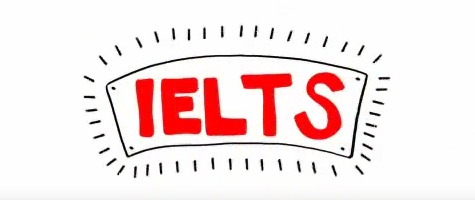剑桥雅思18共收集了雅思真题4套,羊驼雅思整理了第四套阅读真题答案及解析Test 4 Reading,以下是阅读第二篇文章Passage2的文章原文,供烤鸭们复习参考。

剑桥雅思18听力和阅读真题答案及解析汇总查看剑桥雅思18真题答案解析汇总,为助力考生们备考雅思,羊驼雅思APP推出剑桥雅思真题及答案解析视频,可在羊驼雅思APP课程一栏获取剑雅系列视频信息。
READING PASSAGE 2
You should spend about20 minuteson Questions14-26.whicharebasedonReading Passage 2 below.
The growth mindset
Over the past century,a powerful idea has taken root in the educational landscape.The concept of intelligence as something innate has been supplanted by the idea that intelligence is not fixed,and that,with the right training,we can be the authors of our own cognitive capabilities.Psychologist Alfred Binet,the developer of the first intlligence tests,was one of many 19th-century scientists who held that earlier view and sought to quantify cognitive ability.Then,in the early 20th century, progressive thinkers revolted against the notion that inherent ability is destiny.Instead,educators such as John Dewey argued that every child's intelligence could be developed,given the right environment.
'Growth mindset theory'is a relatively new-and extremely popular-version of this idea.In many schools today you will see hallways covered in motivational posters and hear speeches on the mindset of great sporting heroes who simply believed their way to the top.A major focus of the growth mindset in schools is coaxing students away from seeing failure as an indication of their ability,andtowards seeing it as a chance toimprove that ability.As educationalist Jeff Howard noted several decades ago:‘Smart is not something that you just are,smart is something that you can get. ’
The idea of the growth mindset is based on the work of psychologist Carol Dweck in California in the 1990s.In one key experiment,Dweck divided a group of 10-to 12-year-olds into two groups.All were told that they had achieved a high score on a test but the firstgroup were praised for their intelligence in achieving this,while the others were praised for their effort.The second group-those who had been instilled with a 'growth mindset³-were subsequently far more likely to put effort into future tasks.Meanwhile,the former took on only those tasks that would not risk their sense of worth.This group had inferred that success or failure is due to innate ability, and this 'fixed mindset'had led them to fear of failure and lack of effort.Praising ability actually made the students perform worse,while praising effort emphasised that change was possible.
One of the greatest impediments to successfully implementing a growth mindset,however, is the education system itself:in many parts of the world,the school climate is obsessed with performance in the form of constant testing,analysing and ranking of students-a key characteristic of the fixed mindset.Nor is it unusual for schools to create a certain cognitive dissonance,when they applaud the benefits of a growth mindset but then hand out fixed target grades in lessons based on performance.
Aside from the implementation problem,the original growth mindset research has also received harsh criticism.The statistician Andrew Gelman claims that 'their research designs have enoughdegrees of freedom that they could take their data to support just about any theory Reading at all'. Professor of Psychology Timothy Bates,who has been trying to replicate Dweck's work, is finding that the results are repeatedly null.He notes that:‘People with a growth mindset don't cope any better with failure ...Kids with the growth mindset aren't getting better grades,either before or after our intervention study.'
Much of this criticism is not lost on Dweck,and she deserves great credit for responding to it and adapting her work accordingly.In fact,she argues that her work has been misunderstood and misapplied in a range of ways.She has also expressed concerns that her theories are being misappropriated in schools by being conflated with the self-esteem movement:'For me the growth mindset is a tool for learning and improvement.It's not just a vehicle for making children feel good.
But there is another factor at work here.The failure to translate the growth mindset into the classroom might reflect a misunderstanding of the nature of teaching and learning itself.
Growth mindset supporters DavidYeager and Gregory Walton claim that interventions should be delivered in a subtle way to maximise their effectiveness.They say that if adolescents
perceive a teacher's intervention as conveying that they are in need of help,this could undo its intended effects.
A lot of what drives students is their innate beliefs and how they perceive themselves.There is a strong correlation between self-perception and achievement,but there is evidence to suggest that the actual effect of achievement on self-perception is stronger than the other way round.To stand up in a classroom and successfully deliver a good speech is a genuine achievement,and that is likely to be more powerfully motivating than vague notions of 'motivation' itself.
Recent evidence would suggest that growth mindset interventions are not the elixir of student learning that its proponents claim it to be.The growth mindset appears to be a viable construct in the lab,which,when administered in the classroom via targeted interventions,doesn't seem to work.It is hard to dispute that having faith in the capacity to change is a good attribute for students.Paradoxically,however,that aspiration is not well served by direct interventions that try to instil it.
Motivational posters and talks are often a waste oftime,and might well give students a deluded notion of what success actually means.Teaching concrete skills such as how to write an effective introduction to an essay then praising students'effort in getting there is probably a far better way of improving confidence than telling them how unique they are,or indeed how capable they are of changing their own brains.Perhaps growth mindset works best as a philosophy and not an intervention.




